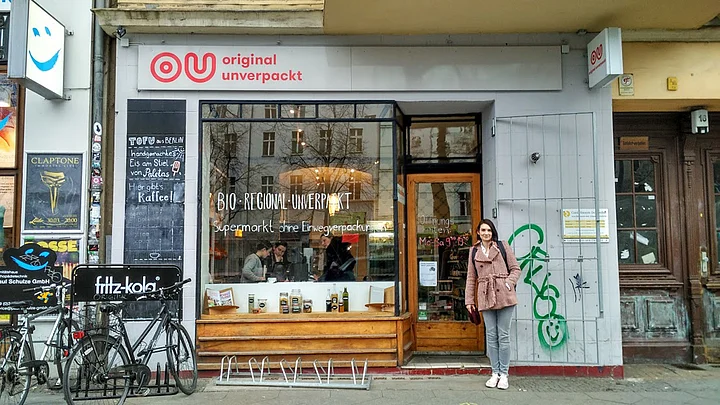A supermarket without packaging?
Believe it or not, it’s a concept that actually exists. Last week, I visited Berlin’s Unverpackt to see how the store worked and came away impressed. It’s practical, reasonable and, more importantly, far more friendly for the environment than our usual style of supermarket shopping.
The Western world has been grappling with the issue of packaging waste for a while and India’s fast catching up – our statistics for plastic and glass waste are shockingly high and very little of it is actually recycled. Even more worrying is that the rate of growth of this waste is set to make the problem an even bigger issue in the future.
So How Does the Store Concept Work?
It’s quite simple, actually. The store is filled with a variety of consumer products in large containers – whether it’s chocolate, soap, pasta, wine, muesli, toothpaste, lip-balm, or even dishwashing liquid, they’ve got you covered!
All you’ve got to do is bring in your own container(s) to the store, weigh and label them (so that the weight of the container can be subtracted from the total weight when it’s filled with the product you’d like to buy). If you don’t have your own, you can always buy one of the unlabelled empty jars in the store (and of course, reuse it the next time you’re at the store).
Then, fill it up from one of the many jars around – there were a surprising number of products and all of them were even labelled with the country of origin. I found two things from India –cloves and walnuts!
While the product range didn’t match the bigger supermarkets, it covered all the essentials with a focus on basic items of everyday use (think food and cosmetic staples). That said, a customer would still have plenty to choose from, as the pictures show. For me though, the cutest things in the store were small lozenge shaped lip balm bullets – put them into the reusable aluminium containers and voila! You can just refill it when you’re done instead of throwing another empty container into the bin.
Best thing of all is that all this doesn’t have to cost the earth. As my friend Christine, a young Berliner who accompanied me to the store put it succinctly, “If you buy the cheapest thing in the cheapest supermarket, then maybe this will be more expensive. Otherwise, the prices are reasonable”.
Conclusion
At the heart of the movement to reduce our packaging waste is the idea that being sustainable and eco-friendly involves dozens of micro-changes to our lifestyles and consumerist attitudes. Think about it – how much do you really need fancy labels and containers?
And while we’re waiting for a similar concept to reach our stores, how about attempting to change our attitudes already? For starters, you could reuse and recycle your plastic bags and glass containers.
Also, next time you visit the bazaar, how about carrying your own container and getting the store owner to fill it up instead of taking yet another plastic bottle or container from them? Little steps can add up so be imaginative and start thinking about your own eco-footprint and how you can contribute!
(Shalini Iyengar is a lawyer and Research Associate at the International University College, Turin.)
(At The Quint, we question everything. Play an active role in shaping our journalism by becoming a member today.)
